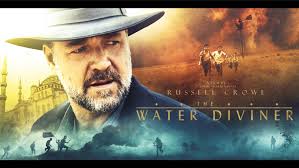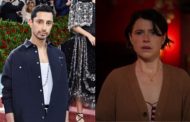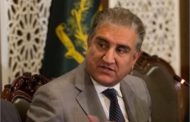Russell Crowe’s publicist has two pieces of information she wishes to impart before I’m ushered into the actor’s hotel suite. The first is a warning that Crowe “may be smoking” during the interview, about which I couldn’t care less, beyond wondering how much it is costing him to have a ciggie. Clearly whatever eye-watering charges Claridge’s levies against those who break the hotel’s smoking ban are but a mere bagatelle to the highest-paid actor in the world – one who has reportedly earned $82m (£55m) at the box office in the past year. The second is that Crowe is “on good form, very talkative”. It’s said brightly, but is clearly intended as reassurance. The one thing everybody knows about Crowe, other than the fact that he was nominated for the best actor Oscar three years in a row, winning it in 2000 for Gladiator, is that he has a fractious relationship with the press. For the prospective interviewer, Googling his name is quite the nerve-jangling experience: testimonies from other hacks that he offered “the worst interview experience ever”, tales of bitter Twitter spats and surly stormings out.
As it turns out, the publicist is right on both counts. Seated on a sofa, wearing a tracksuit, Crowe, 50, is making his way though a packet of Benson & Hedges with the kind of determination you seldom see these days, especially among Hollywood stars. And he does appear to be on good form. In fact, he is the very model of gruff antipodean charm: so antipodean in fact that at one point he uses the phrase “fair dinkum” entirely unironically. He talks cheerfully about everything from the difference between his brand of intensive, immersive preparation for a role and the kind of method acting that requires staying in character between takes (the former is about “giving over time to the contemplation of what you’re going to do and respecting cinema as an art from”, the latter is apparently “a load of old shit”), to his apparent refusal to do commercials or endorse products, a stance that led to a well-publicised spat with George Clooney over Nespresso coffee-makers. “Look, there will possibly come a time when I start doing commercials and you’ll know then that I’ve just given up. Other people can do whatever they want. It’s just my thing. But it’s just reaping, you know? We’re supposed to play different characters. We’re not supposed to lock ourselves and become an icon. I have a …” His voice trails off. “A certain opinion about that level of vanity,” he says, picking his words carefully. In fact, the only time he shuts a question down – he doesn’t want to talk about his audience with the pope that came about as a result of his performance in the biblical epic Noah – he’s virtually apologetic: “Is it OK with you if we leave that one? I’d rather, if that’s OK.”
I would love to tell you that my winning personality and expertly researched questions have somehow broken through Crowe’s fearsome public image to reveal the fair dinkum bloke underneath. But, this week at least, he seems to be behaving like that towards everybody. His latest visit to London has been one long charm offensive. He does a star turn on the Jonathan Ross Show. He appears on Lauren Laverne’s radio show and subsequently tweets that she’s “the hottest thing on radio” and should have her own TV series. A few hours later, he’s back tweeting about how much he enjoyed appearing in the Sun. Perhaps Crowe’s public image is unwarranted.
Advertisement
Without wishing to excuse his errant behavior where members of the public have been concerned – it really doesn’t look good when a multimillionaire actor throws a phone at a hotel concierge, or gets in a brawl with a businessman in a London restaurant, the latter punch-up apparently necessitating the intervention of Ross Kemp – it’s hard not to notice that most of his sudden, piqued departures from interviews have been precipitated by the interviewer telling him that he couldn’t act properly, or sing, or do accents. A cynic might suggest that it’s almost as if they’re deliberately trying to wind him up in order to generate juicy copy. “They want to spark you up, so you go: ‘OK, I’ll spark up, mate. Is that good for you? Did you enjoy that?’” he says. “Same thing happens with photographers. How many times has it been printed that I hit a photographer or slapped a photographer? I’ve never, ever in my life touched a photographer. Some of the cruellest things I’ve ever said have been to photographers who are chasing me down the street, some of the sharpest, most efficient emotional barbs. And they know that in that moment, in that one-to-one wit competition, they just got smashed. But will they admit that? Will they go back to their editor and say: ‘Actually, I got fucking killed by him, he ripped me apart?’” No, they don’t. They turn it into a physical thing. They pretend, you know?”
His problems with the press really began in the wake of Gladiator. He says he rather enjoyed his first flush of American fame, after his performance as the thuggish cop Bud White in LA Confidential, which turned out to be an archetypical Crowe role: a tormented tough guy, whose handiness with his fists masks deeper sensitivities. The fame that came after his Oscar win, however, was “a pain in the arse”.
“Even walking down the street was a pain in the arse. People want a piece of you. And something else happens, man. You build all these friendships and then you hit a certain level within the business and those people need you now, if you’re connected to their thing, their thing gets done, their life is enriched, and friendships get damaged because you say no. Suddenly I was destroying people’s hopes and dreams if I said no to something. It was rather intense.”
The zenith of Crowe’s fame does sound a bit disturbing in other ways. For one thing, he found himself on the receiving end of repeated nuisance calls from, of all people, Michael Jackson. “For two or three fucking years,” he says. “I never met him, never shook his hand, but he found out the name I stayed in hotels under, so it didn’t matter where I was, he’d ring up do this kind of thing, like you did when you were 10, you know. ‘Is Mr Wall there? Is Mrs Wall there? Are there any Walls there? Then what’s holding the roof up? Ha ha.’ You’re supposed to grow out of doing that, right?”
There was also the then little-known terrorist organisation al-Qaida threatening to kidnap him in 2001. “I still really don’t know to this day what the fuck that was all about. All I know is, I arrived in LA, got to my hotel, as I’d done umpteen times before, started unpacking, and there was a knock at the door and a team of FBI guys wanted to sit down and discuss something with me. And then, for nearly two years, they were always around. I remember going to the Golden Globes and having, like, 16 security guys with me. I don’t even know why. They wouldn’t give me any details. And of course, people were like: ‘Look at him, he thinks he’s fucking Elvis.’ And then one day they just weren’t there any more.”
Things are substantially calmer now, he says – he just walked from the hotel to get a coffee and that wasn’t a pain in the arse at all. Crowe is in London being charm itself because he has something to sell: his directorial debut, The Water Diviner, in which he also plays the titular lead, an Australian farmer who travels to Turkey after the first world war to retrieve the bodies of his three sons from the battlefields of Gallipoli. If nothing else, he’s admirably blunt about it: “I need it to be commercially successful. I’ve got to return a commercial result on The Water Diviner because that will give me the freedom to do what I want. It’s already been hugely successful in Australia, but I’ve still got a way to go around the world, to get to the point where it’s actually making a commercial return.”











